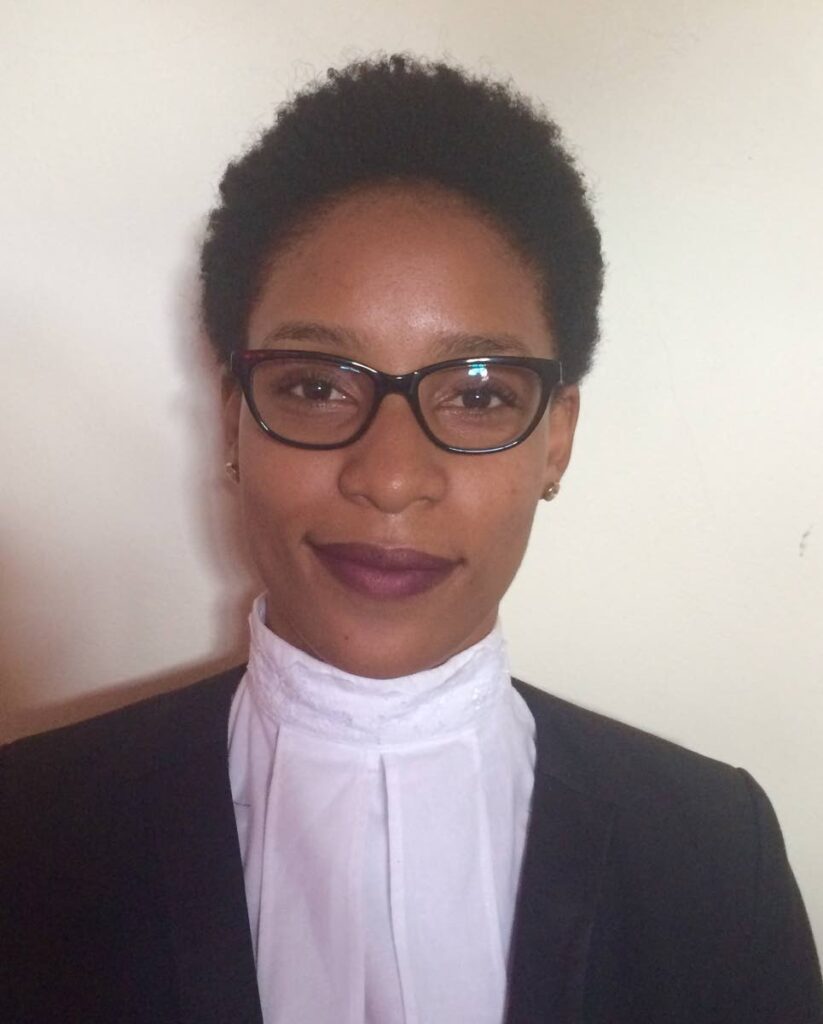Miscarriage of justice

KANISA GEORGE
Have you ever made a mistake? An error so egregious that when you look back at it, you’re surprised you walked away unscathed.
We’ve all been there.
And while some mistakes completely change the trajectory of our lives, the lessons we learn stay with us forever.
Other mistakes, however, are so far beyond comprehension that the very nature of same has the potential to undermine social ties, social structures, and our belief in the good of mankind.
One of the greatest mistakes known to society can be found in the very systems put in place to protect us. Try as we might, no system is perfect, and now and again we find ourselves as a society wondering, how did we get it so very wrong?
Of note, are those mistakes that affect one’s right to liberty, and by extension represent the failure of the criminal justice system.
Most people feel protected by and are confident in the network of systems put in place to manage accused persons and convicted criminals. This system comprising numerous facets, and interrelated pillars ensure public safety and manages deviant behaviour.
When this system fails, not only does it affect the public’s confidence, it adversely affects individuals in ways far beyond our comprehension.
In the last ten years, thanks to Hollywood, we were granted an up close and personal taste of miscarriages of justice and corruption within the criminal justice system.
Though systematic failure is highlighted, what many of us see and could relate to is the emotional, psychological and physical toll it takes on the individual and the complete decimation of human life.
Miscarriages of justice, are much more common than we think. Even with buffers and special features embedded in most justice systems, human and other errors are still inevitable.
What’s interesting about this wrong, is that more than a handful are unintentional or accidental and are simply due to human beings falling short.
According to data from a database set up by the University of Exeter’s law school, four out of ten miscarriages of justice in the 1970s have involved unreliable witness testimony, and one in four a false or unreliable confession.
In the US, studies found that several miscarriages were a result of inherent flaws in the interrogation process and poor policing practices.
A miscarriage of justice can be defined as a grossly unfair outcome in a judicial proceeding. It is widely construed and includes breaches or failures throughout the system.
It can arise from failures at any point from arrest, to conviction and sentence. And even touch on issues like harassment by a law enforcement officer, or even an attorney failing to file a timely appeal.
While redress is offered in some instances the damage is often already done. On the flip side, where unpardonable errors are made in investigations, the handling or presenting of evidence, an accused person could be released, leaving victims feeling unheard and mishandled, resulting in a further lack of trust in the system.
A study conducted by Brooks and Greenburg found that people wrongfully accused of criminal offences as well as their families suffered severe negative consequences.
Their study found that the impact of a wrongful accusation is frequently complex and long-lasting, with participants reporting negative impacts on their self-identity, reputation, psychological and physical health, relationships with others, attitudes towards the justice system, finances, and adjusting to life after their convictions were overturned.
The study further revealed that problems appeared to compound each other and exacerbate the psychological difficulties experienced by the wrongfully accused.
Negative impacts on family members were also reported, with those close to the wrongfully accused also experiencing stigma and psychological difficulties.
For those who were wrongfully imprisoned, traumatic experiences during their incarceration exacerbated the psychological difficulties they faced.
Interestingly, while there is a wealth of literature on the psychological impact on criminals post-conviction, there is very little research involving those who are wrongfully accused of a crime and later shown to be innocent.
The psychological consequences of wrongful accusations appear to affect the lives of those accused seriously, even after exoneration or overturning of convictions.
How then do we address this?
Using available data on miscarriages of justice it is clear that further safeguards need to be implemented.
While academic studies are available, not enough is done to unearth and address systematic risks that are likely to lead to wrongful convictions.
Writer Grace Mou found that however badly the police prepared the meal (evidence), it is still delivered to and consumed by the courts. This design, she argued, meant that the criminal justice system limits what courts and prosecutors could do to prevent miscarriages of justice.
She furthered that police investigations remained largely shielded from external scrutiny, which resulted in some officers lacking genuine incentives to change the ways they gather evidence and construct cases.
One’s right to liberty should never be taken for granted. We might not have a perfect system, but one that is focused on identifying the underlying problems and providing solutions might make all the difference in protecting those interacting with the criminal justice system and avoiding miscarriages of justice.


Comments
"Miscarriage of justice"